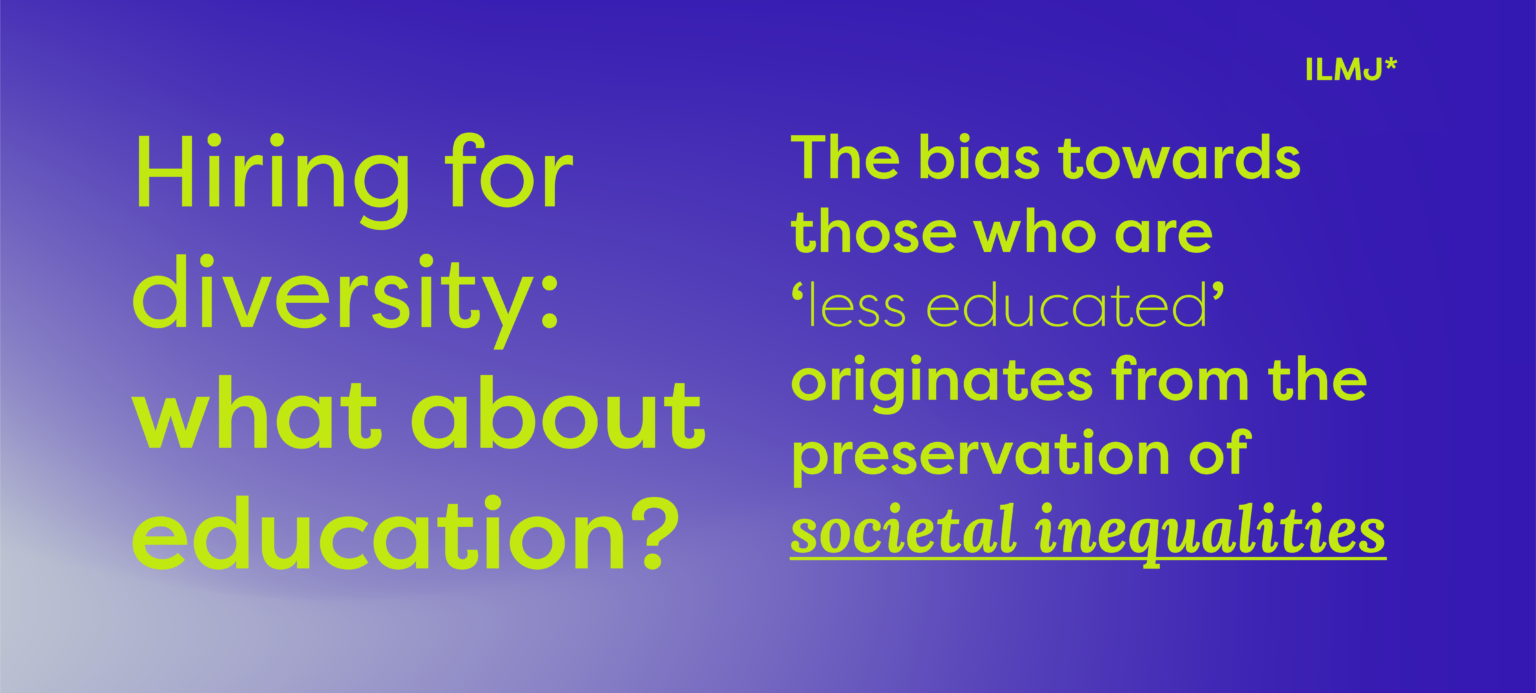Meet Bola Anthony, a Publishing MA student currently working for an independent education provider. Bola aspires to work in the education publishing industry, and is passionate about learning, storytelling, and web content creation.
She has previously volunteered as a Mentor for City Year UK; an education charity committed to encouraging young people to support pupils from disadvantaged communities to succeed in school.
After sharing her story, we invited Bola to create a piece for ILMJ’s Community Blog about the dangers of education bias in the hiring process and ways employers and hiring managers can tackle it in the workplace.
Thank you for your words, Bola. Here it is…
What is ‘education bias’?
When it comes to hiring for diversity, of the many categories needing attention is education.
Education bias is one of several forms of bias. It refers to the opinion held of anyone who assumes that a person who has either: gone to university, gone to a prestigious university, or gone to a prestigious school, is automatically more intelligent and capable than someone who has not.
This bias manifests in daily life and can be particularly harmful when present in both the hiring process and workplace. The danger of this includes but is not limited to: disproportionate access to opportunity, prejudice beyond the interviewing room, and an unbalanced distribution of talent across industries.
Where does it come from?
Having a decreased access to education and opportunity is linked closely to socio-economic barriers, and bias towards those who are ‘less educated’ originates from the preservation of societal inequalities. Often, education bias is a product of long-held traditional beliefs of meritocracy which have yet to be reviewed, let alone reformed.
‘Meritocracy’ refers to the belief that candidates can climb the career ladder through merit and skillset alone. This mode of thinking is obsolete, as privilege, bias, and societal structures directly impact opportunity and growth.
The impact of education bias
In a previous blog where ILMJ discussed classism, they mentioned that 18% of privately educated graduates earn over £30,000 within 6 months of starting work, compared to 9% from state schools.
Here are a few more statistics that demonstrate the unacceptable scope of the effects of education bias:
• Many students who went to Oxbridge are among those dominating the high-ranking jobs, where 39% were privileged to have had an independent education, compared with 7% of the general population
• Over 91% of Oxford graduates are employed after 6 months of graduating
• In the UK, the leading graduate jobs are held by the privately educated
• 58% of employers focus their recruitment efforts on higher educational institutions which their company has historic affiliations with
• Compared to their state school counterparts, students from private schools will earn over £200,000 more within their working career
Solutions
It goes without saying that there isn’t a one size fits all solution to these biases and inequalities. But here are some effective solutions to tackling education bias in the hiring process and workplace.
1. Create a broader pool in talent acquisition
Though evidence of an education has long been a standardised benchmark of a candidate’s suitability for a job, hiring managers should equally consider those with non-academic qualifications or talent. This way, skillset, attitude, personality, and passion are also considered, and the scope of opportunity is widened.
2. Looking beyond experience and connections
Often, candidates with private and/or Oxbridge educational backgrounds are more likely to have been given better industry opportunities, as well as the right connections for employment. Employers must look beyond connections and experience and consider those who have a passionate desire to learn and pick up new skills.
3. Work sample tests
Nothing puts a candidate’s skills to the test better than a test run of the kind of tasks they will be doing if they are selected for the job! In doing so, hiring managers will be able to compare the performance of applicants and foresee how they will perform in the future.
4. Speaking up at work
To assume that all bias takes place in the interviewing room, or the recruitment process is unrealistic. Staying silent when other colleagues are subject to education bias can also be damaging. To combat this, employees should be encouraged through policy and company culture that education bias will not be tolerated and to encourage those who witness such, to speak up.
In summary
With the playing field unequal from the start, we must see that there is truly more at play than meets the eye. If we are to see more long-term positive changes in recruitment, we need a shift in perspective.
The sum of a person must be considered when hiring. If the stats have shown us anything, the prestigiously educated and wealthy account for a minority of the population, leaving a large talent pool of capable, competent, and charismatic candidates who too are fit for the same job.
From ILMJ…
ILMJ strongly believe that everyone should have access to employment and opportunity. It doesn’t matter where someone has gone to school, whether they went to university, or where they went to university. These factors do not determine abilities, skillset, strengths, and most importantly, passion. Let’s stop judging the worth of a person based on something that is out of their control and work to eradicate education bias from the hiring process.
-ENDS-
*ILMJ’s Community Blog is a paid writing opportunity that provides a platform for our community to discuss their knowledge and experiences of the hiring process, whilst detailing ideas and solutions to strengthen social equality in recruitment and the workplace. If you’re an aspiring writer and are interested in getting involved, please email frankie@ilovemyjob.co.uk for more details (No experience needed, just great written skills and a passion for your chosen subject!)
Sources:
https://www.forbes.com/sites/adigaskell/2019/08/14/how-online-job-hunting-can-make-inequality-worse/
https://emorywheel.com/the-invisible-bias-of-educationism/
https://thecircularboard.com/graduate-employment-statistics/
https://bera-journals.onlinelibrary.wiley.com/doi/pdf/10.1002/berj.3256



